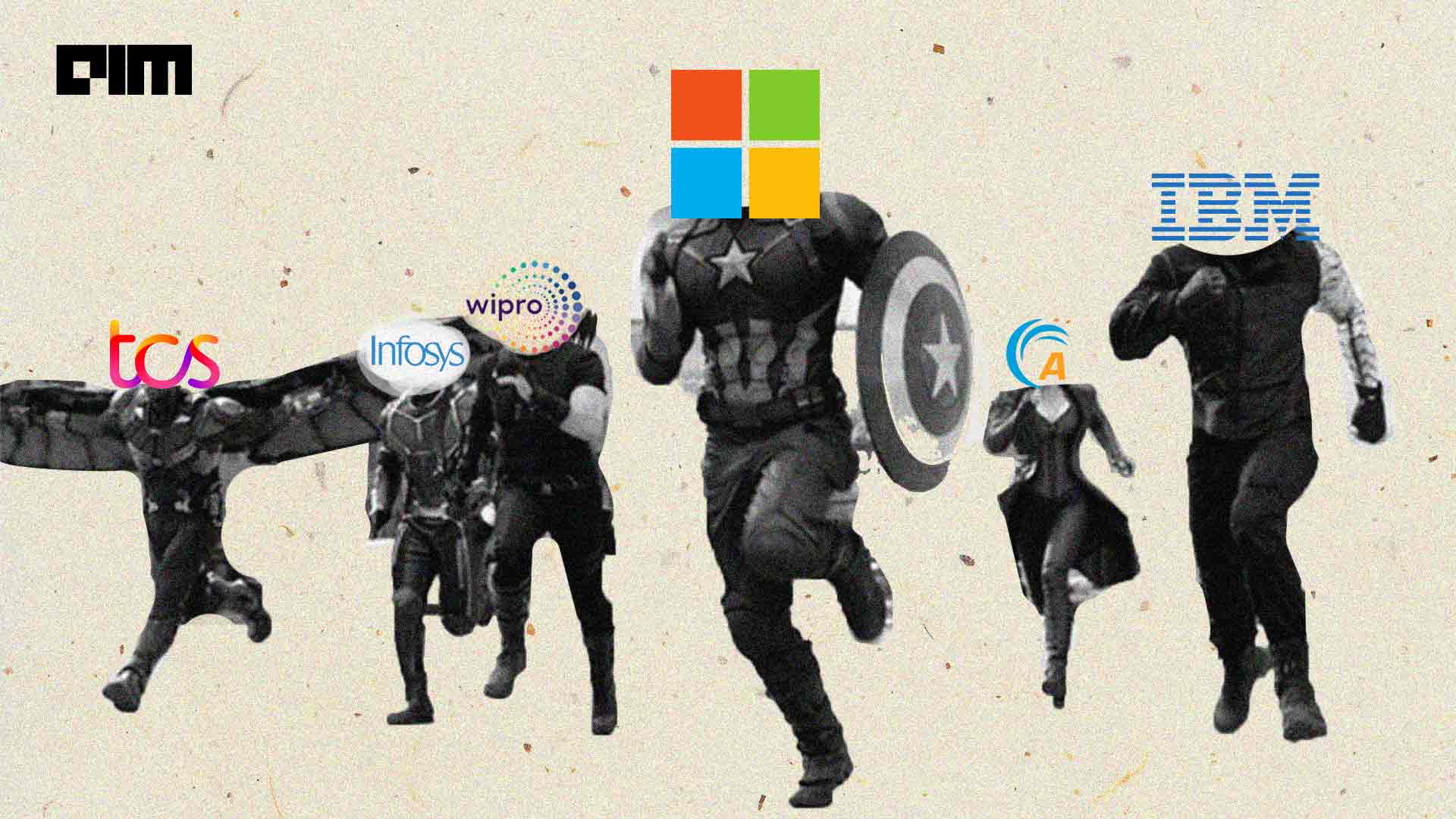|
Listen to this story
|
If there is something that the oxymoronic nature of increasing data reliance as well as data privacy has taught us, it is that enterprises will have to look for solutions that can bring data housed in multiple silos to one place so that data is hands-on and easily accessible across all hierarchies of organisations. At this juncture, we see companies realise the importance of building long-term relationships to enable this, thereby sustaining growth and scaling business.
Growth of strategic partnerships
In the last few months, we have witnessed a surge in the partnerships between cloud platforms and product companies—which will use the cloud providers’ services—to store and manage data within the companies’ networks. For example, the cloud company Akamai Technologies partnered with Zolvit, a legal technology startup, to strengthen Zolvit’s cloud infrastructure.
Similarly, if we look at the case of Microsoft, it recently announced that it is evolving from the Microsoft Partner Program to Microsoft Cloud Partner Program. Microsoft said that the new partner programme extends to all partners in the ecosystem—such as those building and selling services, software solutions, or devices. In addition, the programme will focus on six key areas: Data & AI, Infrastructure, Digital & App Innovation, Business Applications, Modern Work and Security.
The cloud partner programme has opened doors for many partnerships for Microsoft. For instance, earlier this week, the technology corporation announced a ten-year partnership with the London Stock Exchange Group (LSEG). As part of the deal, Microsoft will provide new data infrastructure, analytics, modelling solutions and cloud computing products to LSEG.
However, this is only a small grain to the heap of partnerships Microsoft is currently engaged in, including the National Australia Bank, World Bank, and SaaS provider Lakeba.
Another example of this phenomenon can be IBM’s partnership with Airtel, announced at Think Mumbai. The partnership will leverage 5G technology and enhance the business value delivered by edge computing.
The list of such strategic partnerships continues, explaining how companies today are collaborating with cloud partners to have personalised solutions to their problems.
Moving beyond traditional cloud
While cloud players are looking to strategically offer customised enterprise solutions—similar to what IT firms have been doing for years—to their customers and partners, software-as-a-service (or SaaS) seems to be working in isolation wherein customers themselves are figuring out ways to use them.
Traditional SaaS is a software distribution paradigm that hosts applications on the cloud. The software vendors either use a third-party cloud provider to support the infrastructure, availability and security of software applications or, in the case of large companies like Microsoft, they themselves are the vendor and the cloud provider.
This implies that business customers can licence software from the vendor on a pay-per-use basis. However, while the global SaaS industry is growing at an unprecedented scale, organisations with proprietary algorithms or sensitive data—such as fintech, healthcare, and government industries—still find it difficult to implement SaaS.
Since certain SaaS verticals have to interact with organisations’ codebase or production environment, data-sensitive industries cannot host customer data on a public cloud. As a result, we are increasingly witnessing the growth of private cloud environments for vendors to host applications while simultaneously satisfying customers’ data protection needs.
Popularly deemed as ‘Private SaaS’, this new paradigm is crucial to enterprises. The New Stack defines private SaaS as, “. . . A variation of SaaS where the [software] provider runs the software within the customer’s network but takes responsibility for managing and securing it”. Hence, the vendor will provide a dedicated private cloud for each customer, even if the underlying structure is housed in a public cloud like Azure, AWS, or others.
The advent of private SaaS enables providers to offer customisable solutions to their customers. In the new paradigm, the software provider will handle the deployment, configuration, reliability and security of the software while also maintaining that the data remains within the organisation’s control. The private SaaS framework splits the control plane and data plane.

IBM India’s country leader of data, AI and automation, Siddhesh Naik, told Analytics India Magazine about the new thing called Cloud Satellite—similar to the idea of Private SaaS—which will give organisations the capability of using the cloud without moving the data. For instance, any latency in the production line in manufacturing or automobiles can hamper the whole process. Cloud Satellite, Naik says, is about making possible the “control panel sits on the Cloud, and the actual data sits at the edge”.
The move to the new trend also comes in the light of several discussions surrounding data privacy and data regulation issues. The Indian government also released a draft bill for data protection recently. The outcomes of the bill—one component of which also says that companies should take the responsibility of handling user data securely—is another area which will further propel the use of private SaaS by enterprises.
IT versus the world
The cloud infrastructure is currently expanding itself into private and hybrid cloud environments. The industry is focusing on building more and more partnerships, further proving that companies cannot see themselves as stand alone entities; there has to be a co-optation and a digital ecosystem surrounding them. Nathan Wenzler, Chief Security Strategist at Tenable told AIM that, “Addressing security risks associated with APIs requires a strong partnership between development and security teams to ensure that there is an up-to-date inventory of all the APIs in use across the organisation”. This implies that cloud providers and product companies will work together as a single entity, with cloud partners providing personalised services and hosting them on their cloud, raising the question: What will remain the role of IT service companies in the future?



















































































